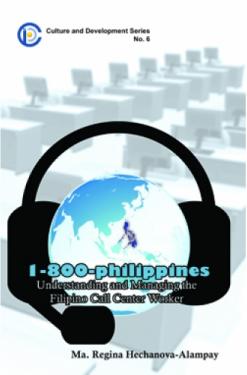
From a handful of companies in 2001, the call center industry has since exploded. Recognizing its ability to generate employment, the government heralded it as an economic savior. Indeed, it seems like a perfect fit, given our country's culture of hospitality. Yet just as easily as the accolades came, so did the criticisms. Critics refer to call centers as modern-day sweatshops. Their 24/7 operations turned people's schedules upside down. Call center work is either a bane or a boon, depending on who is looking. This book documents the yearlong research that involved doing interviews, desktop researches, observations and surveys among call center workers in the Philippines. It describes the nature of call center work--both its benefits and the issues raised against it. It looks at the well-being of workers. It tackles the practice of culture masquerading and its impact on workers' identity and organization commitment. It examines the factors that influence burnout and turnover among workers. Not intending to paint a rosy or a bleak picture of the call center world, this book reveals that nothing is ever black or white--more often, we live in shades of gray. It allows prospective call center workers to enter this world with their eyes wide open and provides leaders of call center organizations with helpful insights on how to understand and manage Filipino call center workers better. Published for the Institute of Philippine Culture.
Published in 2010 with the Institute of Philippine Culture.




